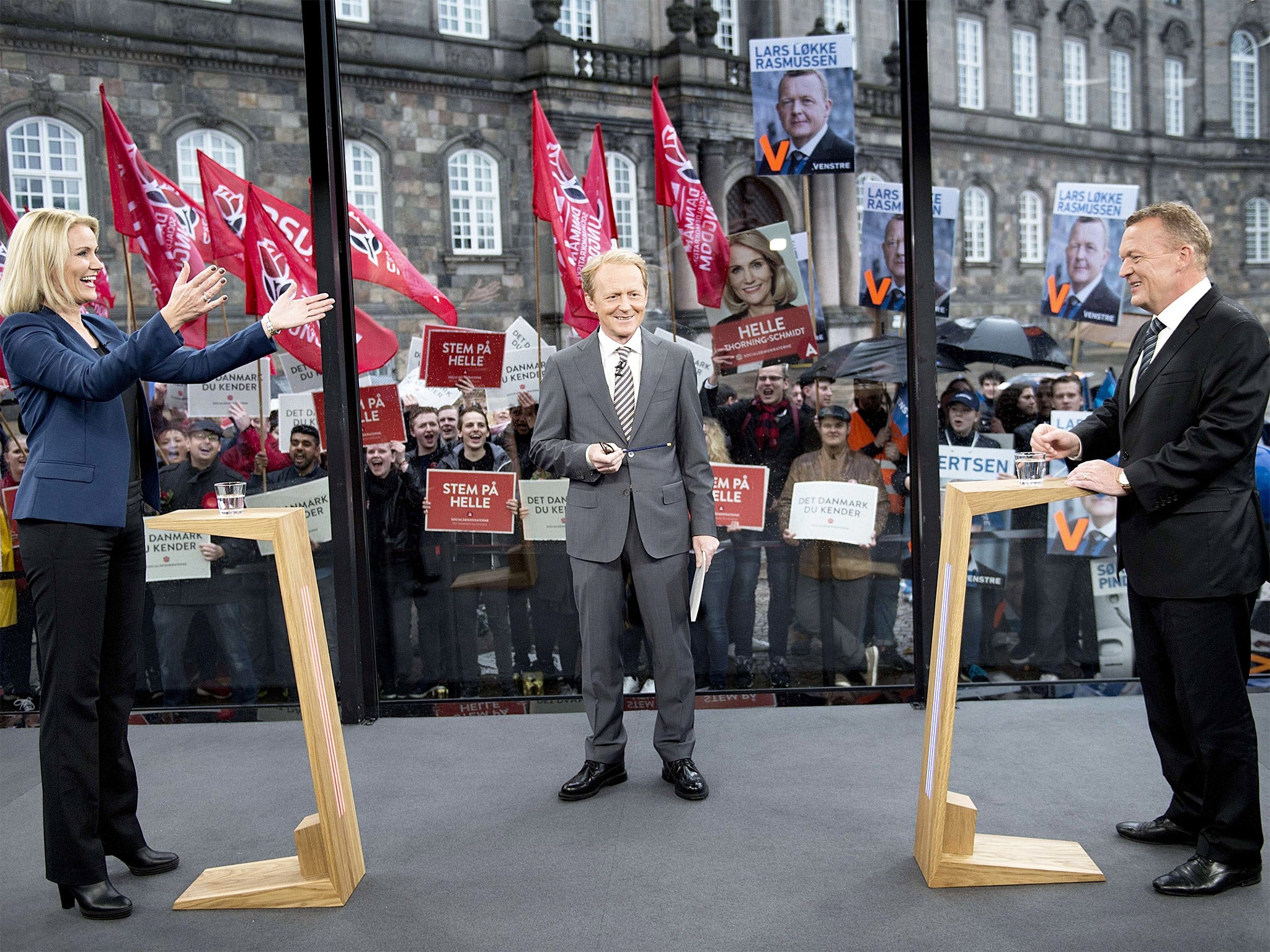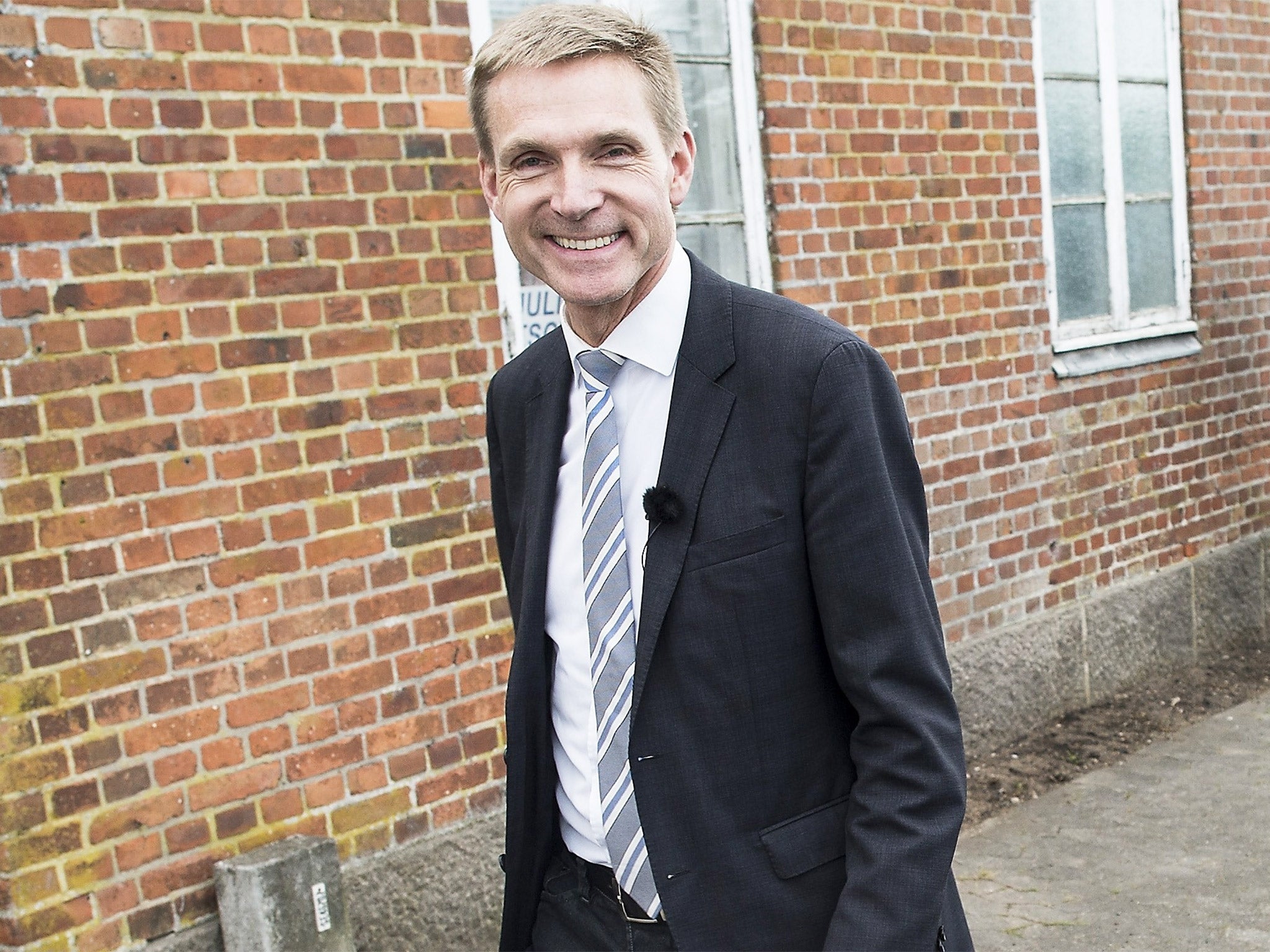Denmark election: Country goes to the polls with opposition parties putting immigration at the top of the agenda
Nationalist parties have attempted to use the issue to maintain their slim lead over the government parties in the last few days of the campaign

Your support helps us to tell the story
From reproductive rights to climate change to Big Tech, The Independent is on the ground when the story is developing. Whether it's investigating the financials of Elon Musk's pro-Trump PAC or producing our latest documentary, 'The A Word', which shines a light on the American women fighting for reproductive rights, we know how important it is to parse out the facts from the messaging.
At such a critical moment in US history, we need reporters on the ground. Your donation allows us to keep sending journalists to speak to both sides of the story.
The Independent is trusted by Americans across the entire political spectrum. And unlike many other quality news outlets, we choose not to lock Americans out of our reporting and analysis with paywalls. We believe quality journalism should be available to everyone, paid for by those who can afford it.
Your support makes all the difference.A last-minute effort by Denmark’s opposition parties to force immigration to the top of the political agenda threatens to undermine Helle Thorning-Schmidt’s campaign to win a second term of office in Thursday’s general election.
A pledge by the right-of-centre Liberal Party to re-open the country’s so-called “ministry of integration”, which handled migrant affairs until it was abolished by Ms Thorning-Schmidt in 2011, has ensured that the record 65,000 foreigners who moved to Denmark last year was prominent in the minds of voters as they prepared to go to the polls.
Both the Liberal Party and the right-wing Danish People’s Party (DPP) have attempted to use the immigration issue to maintain their slim lead over the government parties in the last few days of the campaign.
The re-establishment of the ministry would reverse one of the biggest reforms to immigration made by Ms Thorning-Schmidt’s Social Democrat-led government over the last four years. “If we are to cope with the huge challenges of integration and immigration, we need a comprehensive ministry that can take responsibility for all aspects of the policy,” Liberal Party leader Lars Lokke Rasmussen said as he announced his party’s support for a policy first proposed by the anti-immigrant DPP.
Fears over immigration and the challenge of integrating the 25,000 non-Westerners among last year’s new arrivals has led to increasingly harsh rhetoric, even from the Social Democrats, who have been seeking to win back white, working-class voters who have drifted to the DPP. Early in the campaign, Ms Thorning-Schmidt said that she did not believe that Denmark was a multi-ethnic society.
“No, we’re not,” she said firmly when asked the question in a televised leaders’ debate. Mr Rasmussen went one further. “No, but we are in danger of becoming so if we do not get our act together.”
That even a centre-left politician is not willing to take the risk to acknowledge the first and second generation non-European immigrants who make up some seven per cent of the country’s population, shows how successfully the DPP, led by Kristian Thulesen Dahl, has taken the country to the right on immigration.

Both sides now say they want to crack down on “welfare tourism”, refuse permanent residence permits to unemployed immigrants and make it harder for the families of refugees to join them.
Kasper Hansen, a professor of politics at Copenhagen University, said: “They want to keep it on the agenda all the way to the election day, because it’s so important to them that the voters remember this when they’re in the voting booth. ‘Should I think welfare or should I think integration?’ – that’s the agenda.”
He argues that the right-wing parties’ chance of winning depends on its ability to keep health and social spending – areas where the Social Democrats have more appeal to voters – off the agenda, allowing them to maintain the 2.5 percentage points they have over the five left-wing parties in the polls.
Zubair Butt Hussain, the former spokesman of the Muslim Council of Denmark, complained that the Social Democrats’ election rhetoric was indistinguishable from that of the DPP. “They are going for the same voters and their rhetoric is almost the same,” he complained.
Even so, the DPP is likely to be one of the big election winners, upping its voting share from 12 per cent in 2011 to more than 18 per cent, if the most recent polls are correct. If the Liberal Party wins, this would once again give the DPP the balance of power, allowing it to force through its policies in exchange for backing other key votes.
Ian Manners, a professor specialising in Denmark and the European Union, said that the DPP might decide to enter a coalition with the Liberal Party for the first time, as the Progress Party, its Norwegian counterpart, did in 2013.
Join our commenting forum
Join thought-provoking conversations, follow other Independent readers and see their replies
Comments